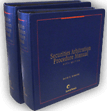Allowing someone to manage your money requires a great deal of trust. When you place your investments in a broker’s control, they must manage them responsibly to earn your confidence. Yet, your broker may have made mistakes that led to significant losses for your account. Or, they may have made changes to it without your permission. These errors, among others, may qualify as breaches of fiduciary duty.
Defining a breach of fiduciary duty
A breach of fiduciary duty happens when your broker fails to act in your best interests, whether with intent or by mistake. In upholding their duty to you, they must protect your account and inform you of any transactions and major market changes that occur. If they have neglected these duties or mismanaged your account, then their actions could qualify as a breach so long as they caused you financial harm.
Breaches of fiduciary duty are often determined on a case-by-case basis. Yet, your broker may have committed one if:
- They failed to warn you against a certain investment’s risks
- They made recommendations and investments unsuitable for your account
- They made recommendations and investments with conflicts of interest
- They made transactions without your knowledge
- They churned your account for their own benefit
Understanding your options
As a material investor, you may fear that your broker will face minimal consequences for their breach of fiduciary duty. Yet, you have ways to recover the losses to your account that their actions caused. If you signed a customer agreement with your broker, it may mandate that you resolve your claim through the Financial Industry Regulatory Authority’s arbitration process. If you are not bound by an agreement’s terms, you have the option of filing a lawsuit against your broker for their actions.
No one wants to see their investment account plummet in value. If yours has dropped due to your broker’s actions, you must take steps to protect yourself and your finances. An attorney with securities experience can help you understand your options for doing so.


